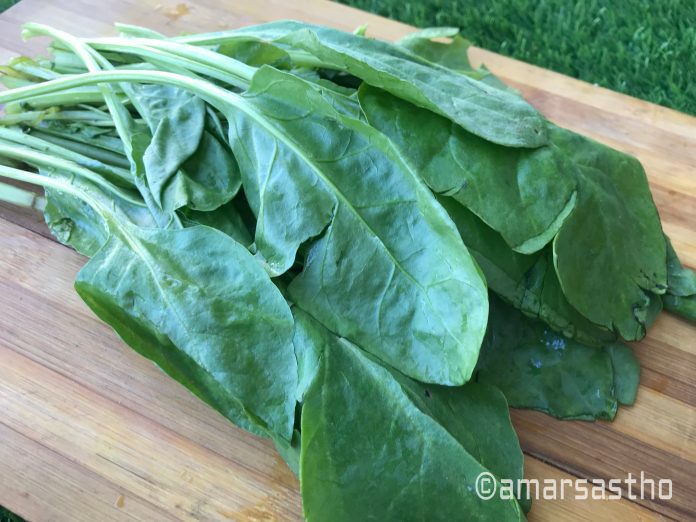Spinach is a superfood. It is loaded with tons of nutrients in a low-calorie package. Spinach is a leafy green vegetable that originated in Persia.
The dark green color of spinach leaves specifies they contain high levels of chlorophyll and health-promoting carotenoids (beta carotene, lutein, and zeaxanthin). These phytochemicals have anti-inflammatory and anti-cancerous properties and are especially important for healthy eye-sight, helping to prevent macular degeneration and cataracts. So, eating spinach can benefit eye health, reduce oxidative stress, help prevent cancer, and reduce blood pressure levels.
The nutrition for 3.5 ounces (100 grams) of raw spinach:
- Calories: 23
- Water: 91%
- Protein: 2.9 grams
- Carbs: 3.6 grams
- Sugar: 0.4 grams
- Fiber: 2.2 grams
- Fat: 0.4 grams
- 24 mg of magnesium
- 167 mg of potassium
- 2,813 international units (IU) of Vitamin A
- 58 micrograms of folate
- Spinach also contains vitamin K
Health Benefits:
- Spinach helps to prevent the growth of cancer because of its antioxidant properties. Several studies have shown that spinach consumption can reduce the risk of prostate cancer. Eating this leafy green may also help prevent breast cancer.
- Spinach can reduce oxidative stress and regulate blood pressure. Few studies have shown that eating spinach effectively lowered blood pressure levels. Free radicals are byproducts of metabolism. They can cause oxidative stress, which triggers accelerated aging and increases the risk of cancer and diabetes. Spinach contains antioxidants, which can fight the oxidative stress and help reduce the damage it causes.
- Vitamin C in spinach is known to have the ability to prevent wrinkles and protect us from eye diseases, prenatal health problems, and cardiovascular diseases.
- Spinach contains high amounts of nitrates, which have been shown to help moderate blood pressure levels and decrease your risk of heart disease. It has also the presence of lutein content that prevents the thickening of walls of arteries, thus reducing the risk of heart attacks.
- Spinach is high in vitamin A which helps our skin and mucous membranes to repel various kinds of bacteria and viruses effectively.
- Spinach provides you with the required levels of magnesium in your body which helps you to generate energy for your day to day chores. Spinach is also a great source of folate, a nutrient that helps your body turn food into usable energy.
- Spinach is very good for bone health. Spinach is a rich source of Vitamin K which helps in promoting the production of a protein called Osteocalc in that is responsible for stabilizing calcium in the bones.





